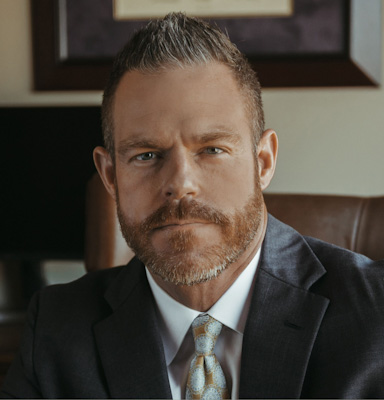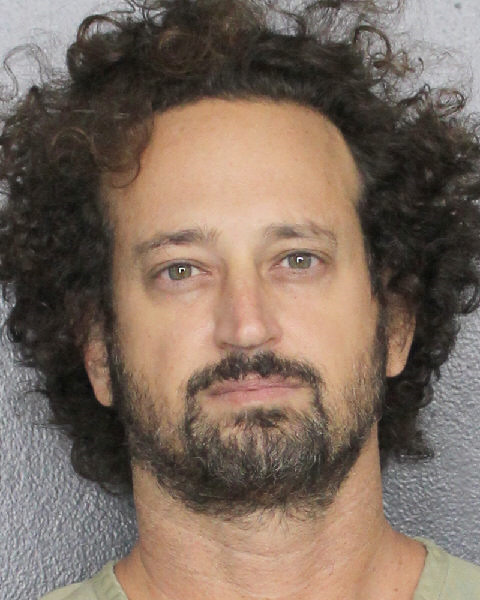This criminal defense lawyer’s big complaint about Netflix’s ‘Abducted in Plain Sight’ is the parents
I remember one of my associate attorneys telling me about Netflix’s true-crime documentary Abducted in Plain Sight, but the premise—a child inexplicably abducted by her neighbor not once but twice—seemed too far-fetched to give much credit.
Recently, the 2017 show popped up in my Netflix suggested viewing section, so I figured I’d give it a try. In the end, my feelings were mixed.
As a parent, I found myself vacillating between confusion, anger and disbelief as I listened to the parents, Bob and Mary Ann Broberg, excuse away their actions, or more appropriately, inactions, in dealing with their daughter Jan’s multiple kidnappings.
Some might argue I’m overprotective or too cynical when it comes to my parental duties due to the nature of my job, which often involves defending individuals charged with sex crimes. However, that’s my job as a parent: to be protective to whatever degree is necessary and view everything my gut alerts me to as a potential danger to my child’s well-being.
Additionally, my job as a parent is to take steps to relay those concerns to the appropriate authorities if need be. In fact, that might be my biggest complaint about Abducted in Plain Sight: the Broberg parents’ sheer complacency.
In Netflix’s 2017 true-crime documentary Abducted in Plain Sight, a family falls prey to the manipulative charms of Robert “B” Berchtold, a neighbor who abducts their adolescent daughter twice.
Fool me once
How do parents allow their child to be abducted by the same family friend on more than one occasion? Abducted in Plain Sight does its best to give context to a possible answer if not totally solve the equation. One thing it does successfully, though, is frame the progression of law enforcement’s understanding regarding “grooming” in child sexual abuse cases.
Through multiple present-day accounts from the victim herself, family and the agents who investigated, we learn the circumstances surrounding Jan Broberg’s multiple kidnappings—the first in the early 1970s when she was 12 and the second at 14—committed by the same man: the Brobergs’ neighbor, Robert “B” Berchtold.
Berchtold kept Jan Broberg ensnared in his trap by creating an extraordinarily elaborate ruse involving prerecorded audio messages, a messiah allegory and stories of alien abductions and cross-species mating habits. Sounds insane? It is.
Just know that Berchtold’s tactics resulted with him and his captive victim, then 12, in a Mexican jail cell after they had been married. At the time, Mexico allowed children 12 and up to wed. And that was just the first abduction. Let that sink in.
In each situation where their daughter was abducted, the parents waited days, if not weeks, to alert law enforcement. How they were able to escape criminal prosecution themselves baffles me, but that may be due to the lack of laws in Idaho aimed at enabling child abuse during the 1970s when these crimes occurred.
Furthermore, the parent’s delays could also be due to their mental makeup and the control Berchtold gained over them. He created sexually compromising circumstances for each that he used to blackmail them into abstaining from assisting their daughter the way they should have.
In essence, Berchtold not only groomed Jan, but he also groomed her parents as well. Sadly, during that time frame, no one, including law enforcement, was acutely aware of that predatory behavior and how prevalent it was in child sexual abuse cases.

What is ‘grooming’?
A large portion of my practice is devoted to trial work, specifically defending individuals from sex crime accusations. As such, I have dealt with various scenarios in which grooming is part of the underlying allegation.
Grooming occurs when an individual tries to build a relationship of trust and empathy with another person—usually a child or young adult—so they can exploit and manipulate the victim for their gratification. We often see grooming behavior exhibited in the frame of gift giving, excessive attention and attempts to seclude or separate.
Gift giving and attention showering build an emotional bond. Moreover, those actions create a situation in which the victim will hesitate to break the grooming relationship so not to risk those gifts or attention. The act of seclusion builds trust, as the groomer becomes the only person the victim can “rely” on since everyone else has been walled off.
We see grooming in the vast majority of child sexual abuse cases. In fact, it’s much rarer to see a situation in which a child is kidnapped and/or abused by a total stranger or without some type of emotional and physical preparation. The process is gradual, and the perpetrator continues to up the ante until they feel comfortable that their victim is comfortable as well.
Before gaining mainstream association with child sexual abuse, the term “grooming” referenced the act of mentoring, coaching or preparing someone for a specific role. It wasn’t until the late ’70s and ’80s that law enforcement began to see the patterns and put the pieces together. As such, its connotation with the sex crimes wasn’t initially apparent, but the phrase’s modern expression makes sense. Often, predators are “coaching” their victims to become accustomed to the abuse.
Seeing as how grooming wasn’t a commonly understood practice associated with child sexual abuse at the time Jan was victimized gives a bit more context as to how and why her parents may not have seen the signs and fallen victim themselves. But even with that backdrop, it’s still difficult not to resent the parents’ inaction. I find it hard to believe Bob and Mary Ann Broberg didn’t notice Berchtold’s obsessive and inappropriate relationship with their own daughter.
After all, just because grooming wasn’t widely associated with child abuse didn’t make it any less obvious and troublesome to those paying attention.
Some might question these complaints coming from a criminal defense attorney, but I don’t agree with the actions of the criminally accused just because of my profession. In fact, I don’t agree with many of my clients’ actions. My job isn’t to agree with defendants. My job is to test the prosecution’s evidence in support of its allegations.
Nevertheless, I understand that some people try to give others the benefit of the doubt. I know some folks are naturally more trusting than others and do their best to believe and rely on candor until they have a reason not to. Sadly, sometimes, that reason ends up being a wound that will never heal.
Adam Banner
Adam R. Banner is the founder and lead attorney of the Oklahoma Legal Group, a criminal defense law firm in Oklahoma City. His practice focuses solely on state and federal criminal defense. He represents the accused against allegations of sex crimes, violent crimes, drug crimes and white-collar crimes.
The study of law isn’t for everyone, yet its practice and procedure seems to permeate pop culture at an increasing rate. This column is about the intersection of law and pop culture in an attempt to separate the real from the ridiculous.
This column reflects the opinions of the author and not necessarily the views of the ABA Journal—or the American Bar Association.







